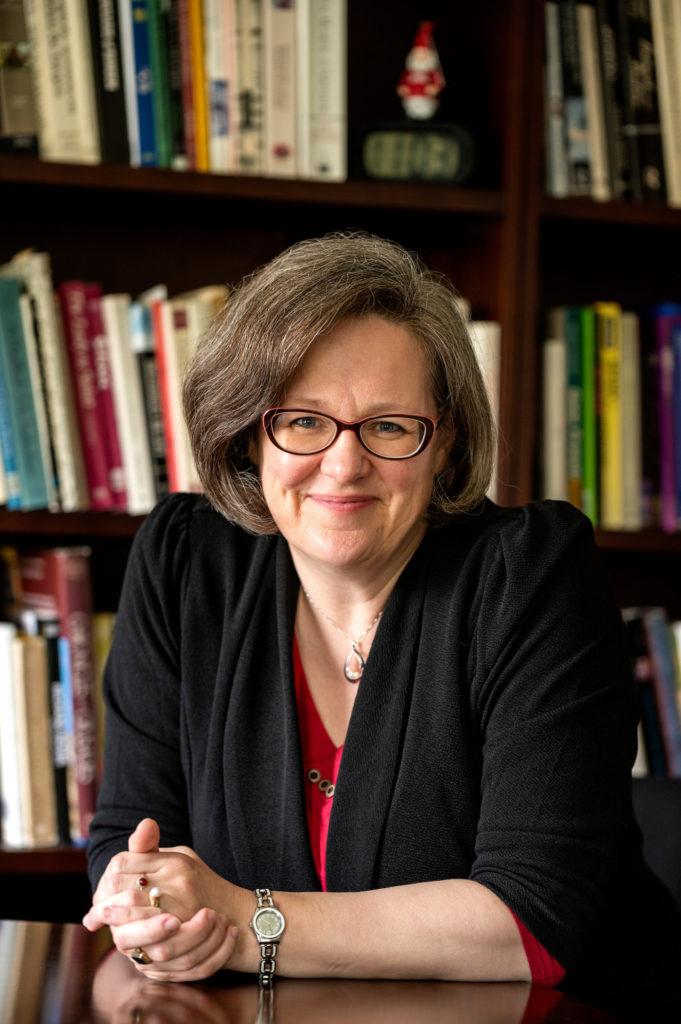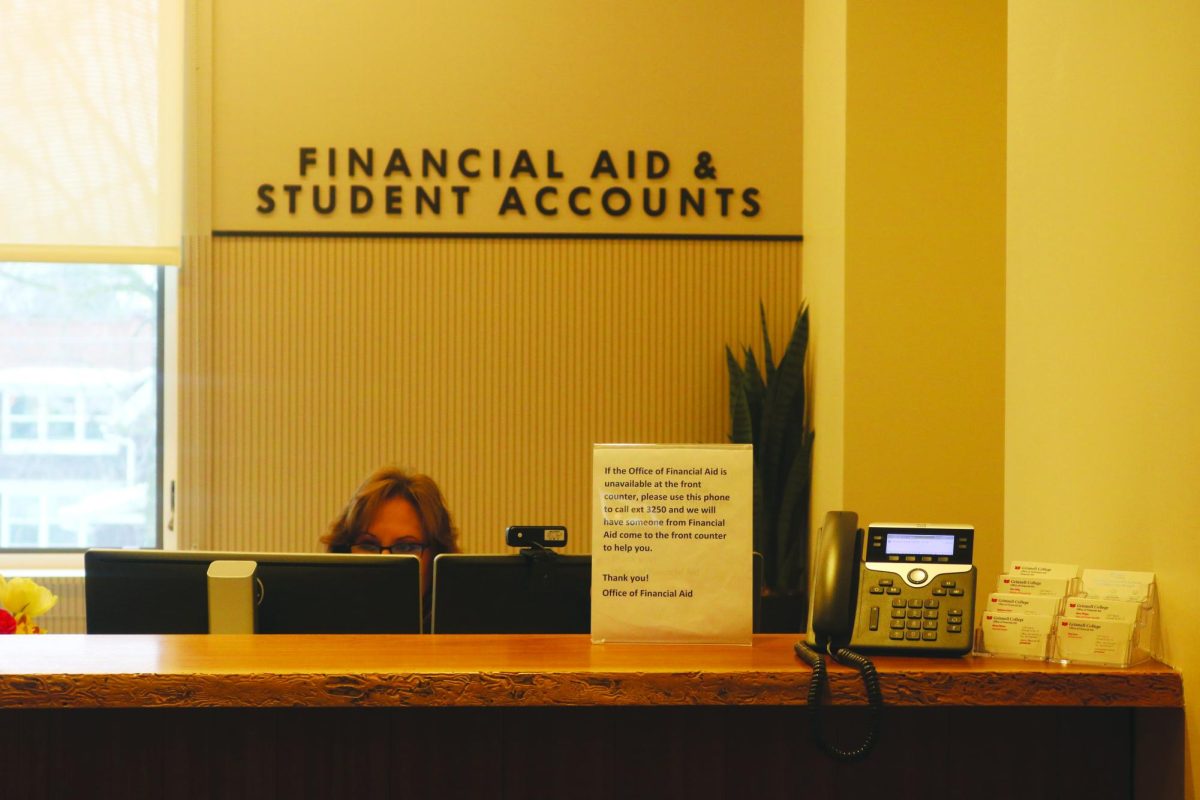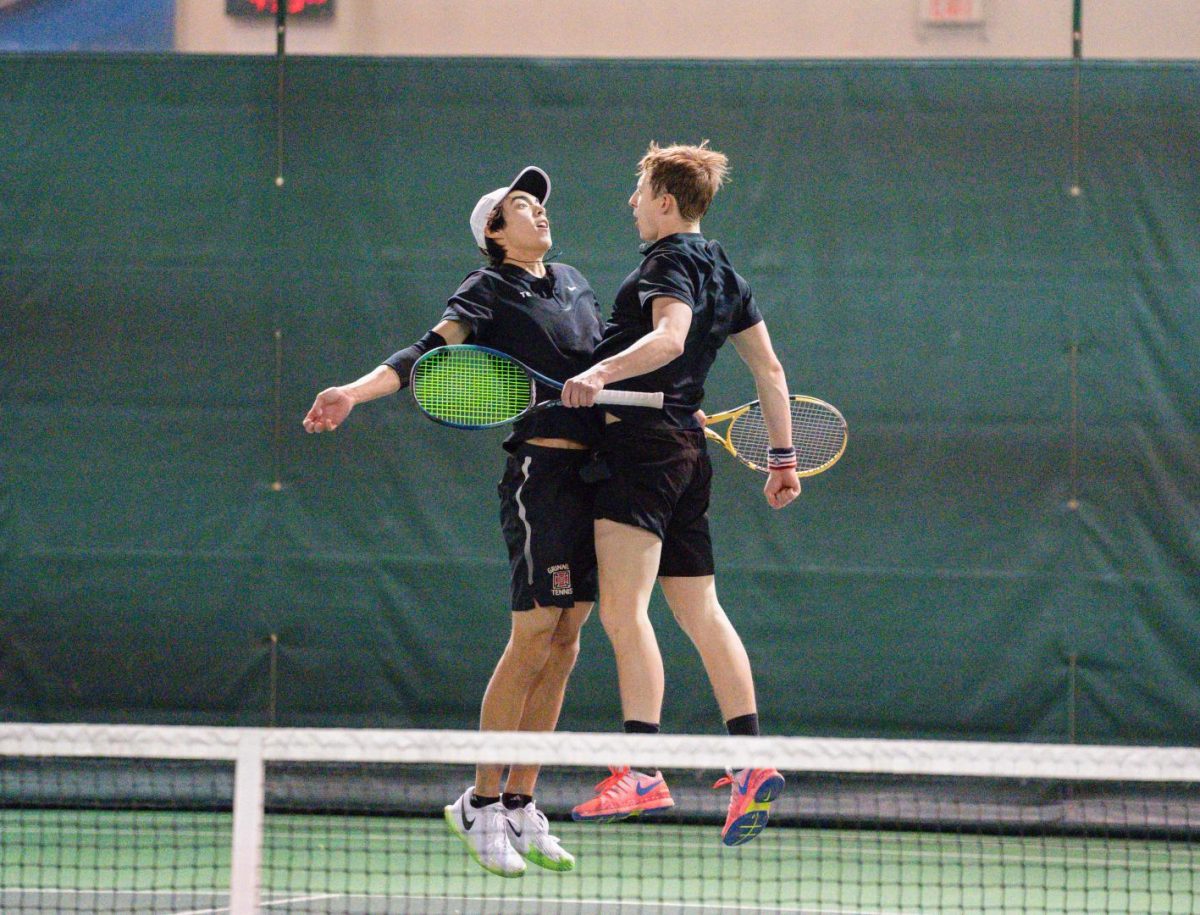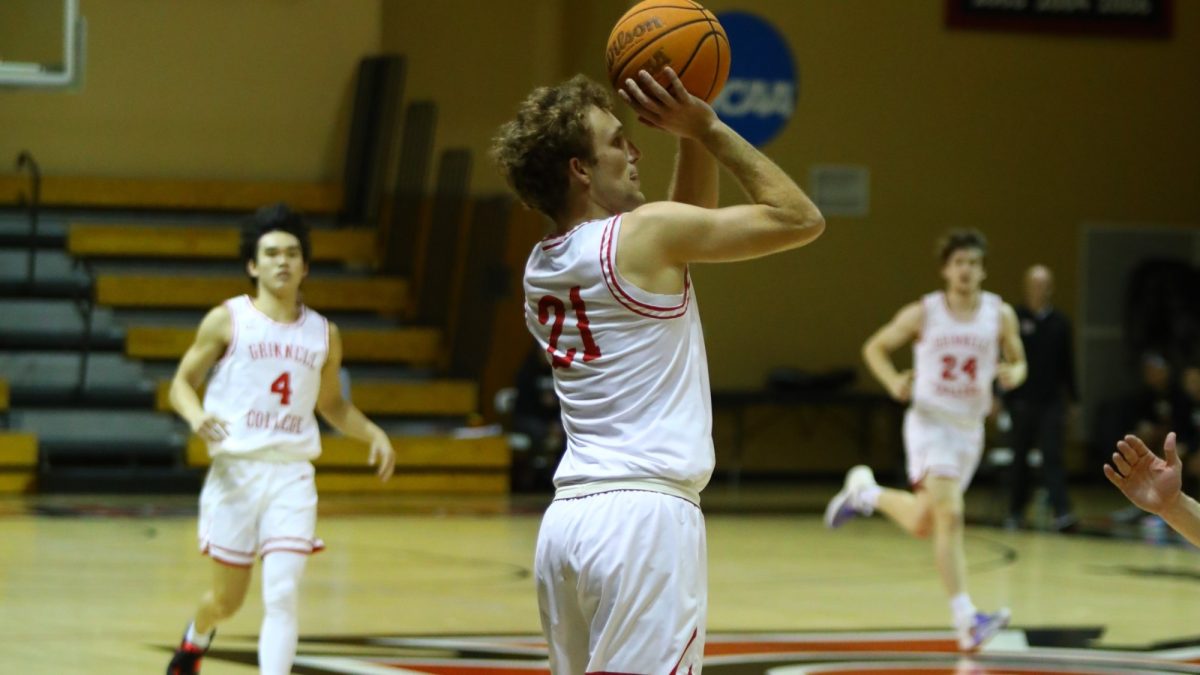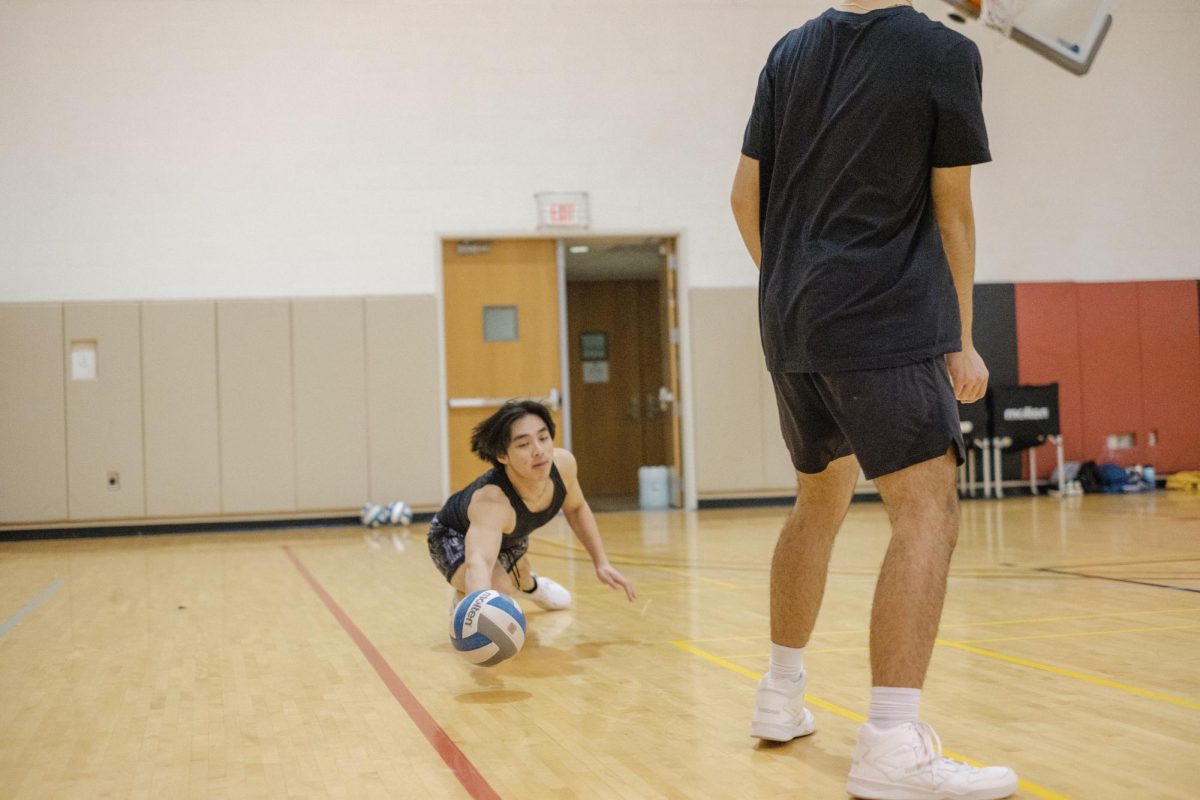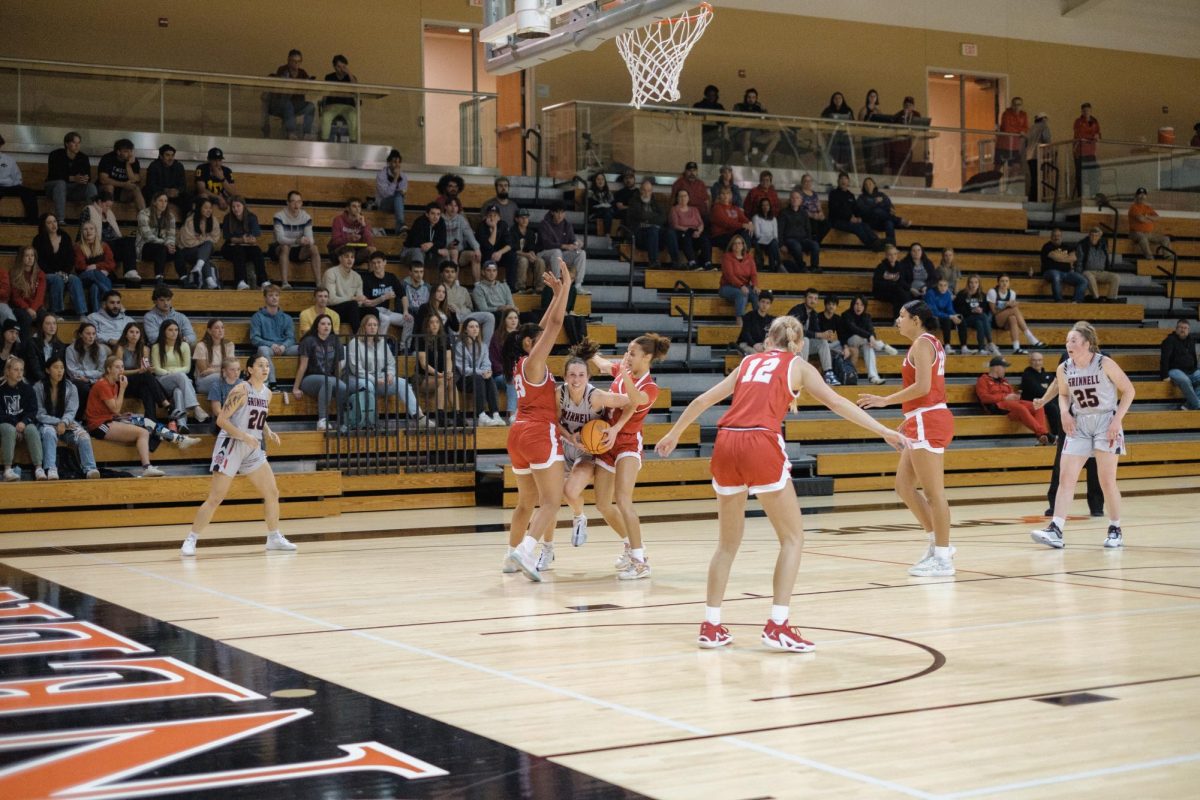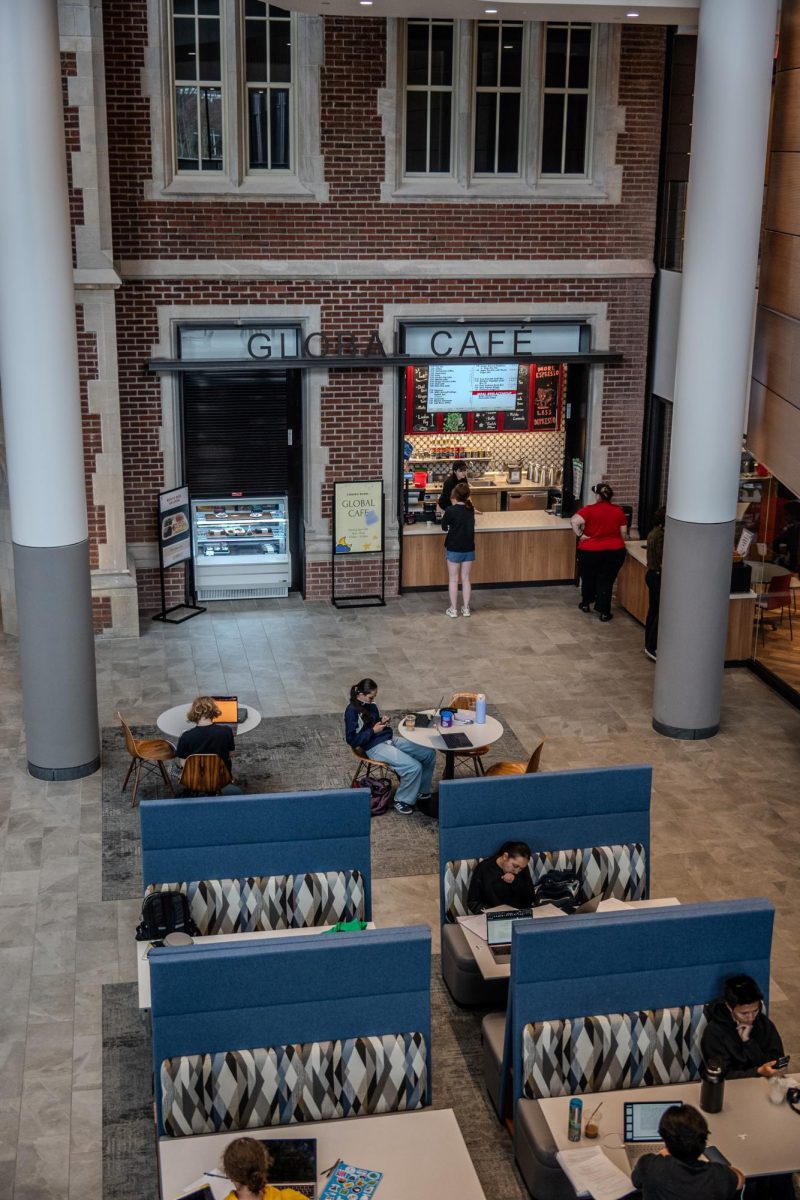Grinnell College announced that Anne Harris will be the College’s 14th president in a virtual gathering on Tuesday, July 14. Harris, who had assumed the role of acting interim president on July 1, replaces Raynard Kington, who stepped down this year in order to take on a new position as head of Phillips Academy Andover.
Whereas previous leaders of the College have been introduced to crowds of students, faculty and staff in Herrick Chapel, the pandemic necessitated a digital debut for the new president. Harris’ announcement video featured speeches from members of the Presidential Search Committee, all of whom described Harris as an exemplary leader in a time of crisis and as someone willing to have difficult conversations.
A leader who listens
“People care here,” said Harris of the Grinnell community in an interview with The S&B. This passion, she said, has been clear to her since she arrived on campus in the spring of 2019: “They want Grinnell to be better.”
A lifelong educator and scholar, Harris holds that critique is care. “If you reach out to me with your passions and frustrations, it’s because the issues that drive them matter. And I promise to listen,” she said in the announcement video.
It is this “inclusive, thoughtful decision making” combined with her “powerfully demonstrated … ability to lead” in a global health emergency which led the Board of Trustees to “enthusiastically and unanimously” elect Harris as the new president, according to Board of Trustees Chair David Maxwell ’66. Harris was selected after a national search that resulted in more than 30 multi-round interviews with presidents, provosts and deans from across the country.
“Everyone was reassured by her leadership, she approached every challenge and every crisis in ways that were consistently principled, deliberative and respectful,” said Presidential Search Committee member and former chair of faculty Todd Armstrong, Russian, Central and Eastern European Studies.
Harris came to Grinnell last year to assume the position of vice president of academic affairs, a position she held previously at DePauw University. Before transitioning to an administrative role, Harris was an art history professor at DePauw, specializing in medieval art and history.
In The S&B’s interview, Harris said that her experience as a professor taught her to be driven by curiosity. “I would come into the classroom always asking questions that I didn’t know the answer to,” she said. Harris said she has transferred this curiosity to her subsequent administrative roles.
Indeed, Maxwell related in his introductory speech that Harris “could often be heard articulating before a meeting, ‘I wonder what I’m going to learn today.’”
A vision of opportunity and belonging
In her new role as president, Harris will combine her value of curiosity with an eye towards long-term planning and the stewardship of Grinnell.
“The horizon line is even farther in terms of thinking about what we do today shaping Grinnell thirty years from now,” she said.
Harris’ vision for the College revolves around both “opportunity” and “belonging,” two aspects of the Grinnell experience she hopes to build upon and at times reevaluate. For the time being, her approach to fulfilling that vision is still based on researching and learning from the Grinnell community to further her own understanding of these issues.
Harris cited the “tremendous work” of faculty and staff in developing opportunities for students as something the College should continue to build upon. She said her goal is to ensure that these opportunities are “visible” to students, and that students see them as “access points.”
Harris spoke of the second aspect of her vision, belonging, as being more “amorphous,” but she said she intends to study spaces on campus and student organizations as a way to concretely understand and further students’ sense of belonging.
How do we start to think about work as a part of what it means to be a student? – Anne Harris
For Harris, it’s essential for students to see “the impact of their presence,” and she noted that as Dean she had initiated a Belonging and Persistence Working Group in the spring of 2020, a group whose work she wants to continue. “If [belonging] isn’t there, it’s a very powerful absence in this experience at the College,” said Harris.
Harris also said that a key aspect of belonging is work. “How do we start to think about work as a part of what it means to be a student?” she asked, noting that 80% of Grinnell students have a job. “We know students are here primarily to be students, but they’re also employed. They’re also working.”
Rather than separate the student as learner and the student as worker, Harris said the College needs to adopt a more holistic vision of the student experience as both learner and worker.
Harris’ views on student workers may be particularly relevant as the Union of Grinnell Student Dining Workers’s attempts to make inroads on campus have been frustrated by the College administration, an issue that will undoubtedly carry on into Harris’ tenure as president.
Ultimately, Harris said belonging is tied to wellbeing, something else she wants to focus on. “Grinnell is a place of phenomenal excellence, and I’d like to add wellbeing to that excellence,” Harris said.

Actualizing self-governance
In comments made in the announcement video, Regina Logan ’20, former SGA president and member of the search committee, said she was looking for a candidate “who would clarify and actualize students’ role in the College’s shared governance model.” Logan said Harris was that candidate.
Harris said that the process of clarifying and actualizing self governance – a hallmark of Grinnell that has seen notable controversy in recent years – begins with coming to a shared understanding of what self governance means. She referenced the Task Force on Residential Life’s revised definition of self governance – produced in 2018 – as a starting point to that process, but not the end.
“I’m a historian. I like to start with a document. But I think we also have a lot of living experience of self governance,” Harris said.
Harris’ understanding of and commitment to self-governance is intertwined with her belief that education supports democracy and that by being at Grinnell, students are learning how to be in and engage with their communities.
“How does the living and learning experience [at Grinnell] then build this sense of civic trust?” asked Harris. “We hold each other in trust. We hold our community in trust. We might even hold our wellbeing in trust. What does that mean in terms of how we disagree with each other, how we move a project forward, how we wrestle with a problem, pandemic or national issue?”
These questions, which she placed within the framework of “civic trust,” inform her understanding of not just self-governance, but the importance of a liberal arts education.
Lana Katai a’21, the current SGA president who said in her campaign that she would “take a stand” against administrative overreach, wrote in a text message to The S&B, “Anne’s great. She’s displayed a very down to earth style of administrative leadership that is quite responsive to student feedback and concerns. I’m happy to see that she’ll be the next President, and personally look forward to working with her this year.”
Looking from the past towards an uncertain future
Harris will start her tenure as president in a time of turmoil, a global public health crisis and a national reckoning over race being just the most recent issues which institutions of higher education face in today’s world. Harris is charged with determining Grinnell College’s next steps towards an uncertain future, yet she said that she is also looking to the past.
“I don’t feel like I have a good sense of [the College’s] traditions, and of course a part of me wonders, is that because there aren’t that many or is that because there’s more to build on?” she said. “There’s more I want to learn about the history.”
In a nod to the College’s past, the Tuesday morning ceremony finished with a rendition from the Grinnell College Songbook, “Daughters of Old Grinnell,” written by Alice Phelps ‘19 and performed by nine members of the Grinnell Singers choral group. The second verse ends with a charge to Grinnellians: “May our loyalty ne’er waver/ In success or strife.”
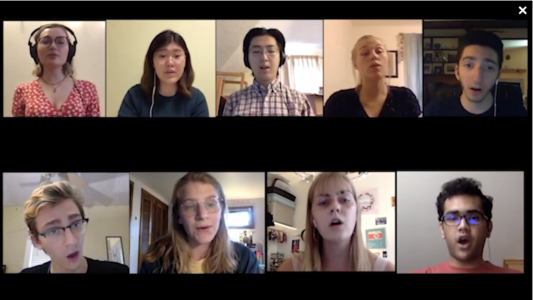
These lyrics of long-standing loyalty were echoed by George Moose ’66, trustee and Presidential Search Committee co-chair, who also spoke at Harris’ announcement. Moose invited his fellow Grinnellians to reflect on what the College means to them and to reaffirm their commitment to the school in order to ensure “it will be here” to serve future generations.
Harris, for her part, said that she is confident Grinnell College will make it through this moment stronger than ever.
“Even with this pandemic, I increasingly don’t see it as a year where everything is on hold,” she said. “I see it as a year that we’re going to learn from, we’re going to learn about ourselves and how we learned in these conditions and I know we’re going to bring it back when we all do come back together on campus.”



















































